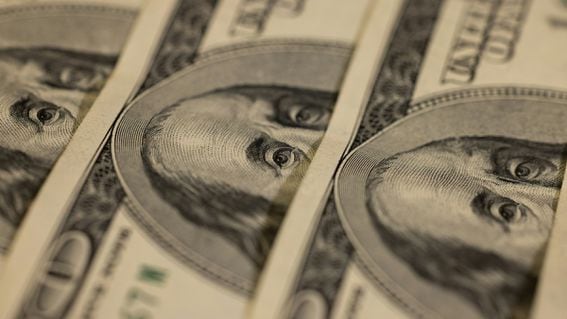Bitcoin is yet again playing savior in weakening global economies such as Japan. The Japanese currency has been experiencing a significant decline on the foreign exchange market, reaching the lowest point in almost 34 years at the 156-yen level on Friday.
However, this is attracting a significant influx of tourists to the country. In March, the Japan National Tourism Organization reported that the number exceeded three million. This is the highest ever recorded for a month, surpassing the previous record set in July 2019.
Japan’s Yen and Bitcoin rollercoaster
The global macros are indicating concerning trends, with the Japanese Yen reaching its lowest point against the USD in 34 years. In addition, the Yen decline is driven by the strength of the USD.
The persistent U.S. inflation has compelled the Fed to maintain higher interest rates for a longer duration than anticipated. As Japan’s central bank grapples with this situation, leading analysts are pointing to Bitcoin as a potential savior for Japan amidst its depreciating currency.
After the yen value took a hit, the price of Bitcoin against Japan’s currency experienced a significant surge. This sparked a lively discussion on social media about the decline of fiat currency and the potential of Bitcoin as a reliable form of money.
Private players in Japan have already begun embracing Bitcoin. Earlier this week, a Japanese public firm, Multiplanet, made a significant purchase of $6.25 million worth of Bitcoins.
Last month, department stores nationwide experienced a 9.9% increase in sales compared to the same month last year. According to the Japan Department Stores Association, this marks the 25th consecutive month of growth. From January to March, overseas visitors spent a staggering 1.75 trillion yen, equivalent to 11.3 billion dollars, in the country.
The sales of tax-free goods reached nearly 50 billion yen, showing a significant 2.4-fold increase compared to the same month last year. This marks the highest monthly sales recorded since the survey was initiated in 2014.
Export companies are reaping the benefits of the weak yen. However, individuals are experiencing the impact as the cost of living increases due to the rise in prices of imported goods and materials.
Stock prices in Tokyo are being driven up by the weak yen. Investors have been purchasing shares in export-related industries, such as automakers, due to the yen’s decline against the dollar. That contributed to the benchmark index of the Tokyo Stock Exchange reaching its highest point ever earlier this year.
Is there hope for Japan’s economy?
Users recognized the “superior design” of Bitcoin, highlighting Satoshi Nakamoto’s framework that sets a maximum limit of 21 million BTC. This cap is fixed and cannot be changed, as it is deeply embedded in BTC’s blockchain protocol. By implementing halving events, the system effectively reduces inflation by decreasing the number of new tokens being circulated.
The Japanese yen (JPY) continued to decline by 1.3% throughout the day, marking a significant movement for a major currency. It reached its lowest point against the U.S. dollar since 1990.
Following the Bank of Japan’s decision to keep interest rates near zero and not showing significant worry about the yen’s decline, this drop occurred. Meanwhile, Japanese banks are actively pursuing opportunities to invest in deposit-backed stablecoins.
While the devaluation of the yen has not had an impact on crypto markets so far, there is a possibility that this situation could change if the BOJ decides to intervene and strengthen the currency. Engaging in such intervention may entail the BOJ selling off its U.S. dollar assets, particularly U.S. Treasuries, in order to acquire yen.
This could potentially lead to a depreciation of the dollar, which, in theory, could have a positive impact on cryptocurrency prices. On the other hand, it’s possible that U.S. policymakers may choose to inject liquidity into the markets, which could offer some support for risk assets like cryptocurrencies.





